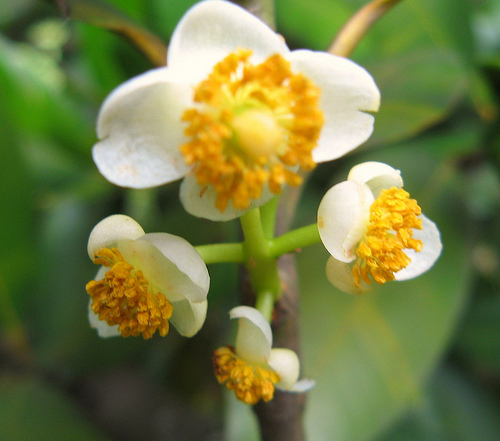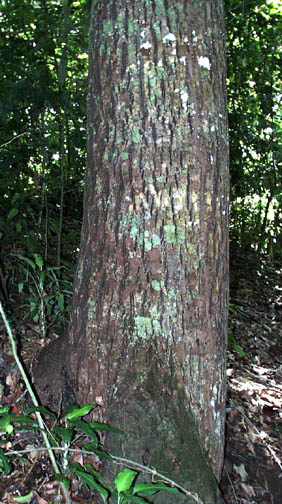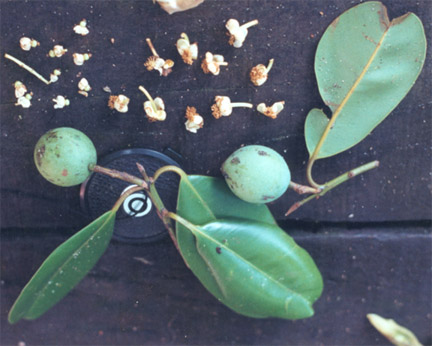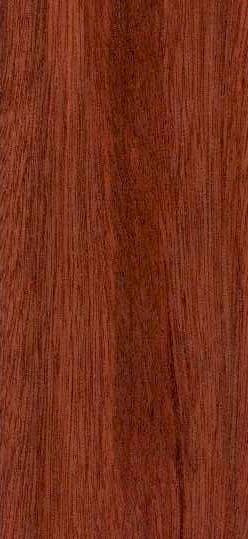|




|
Family: Gurriferae
Genus:
Species:
Common Names: Bari, Leche de Maria (Mexico), Calaba (Panama), Aciete maria (Columbia), Edaballi, Kurahara (Guayana), Balsamaria (Bolivia), Guanandi, Jacareuba (Brazil)
Parts Used: Wood
| PLANT DESCRIPTION | | Characteristics: | Easily identified in the forest because of its unique
canopy and branches; leaves are usually bright and the asymmetric shape of leaflets
can be clearly seen through binoculars; erect grayish to reddish fruits located
at the tip of branchlets are very conspicuous, measuring more than 10 cm in
length. It is a big tree, reaching 50 meters in height with a clean trunk up
to 25 meters; adult trees have a 75 - 150-cm diameter at breast height and buttresses
may rise to 4 meters. Bark is dark reddish brown with many deep fissures along
the trunk
|
Beneath its bark, C. brasiliense has a thick, yellow resin that is reported to have medicinal qualities.
Both species of Calophyllum have easy to work, orange wood of moderate weight that is highly appreciated in furniture making
and construction.
Distribution and ecology:
Wood and uses: A beautiful hardwood as seen to the left.
Potentially Endangered:
|
|